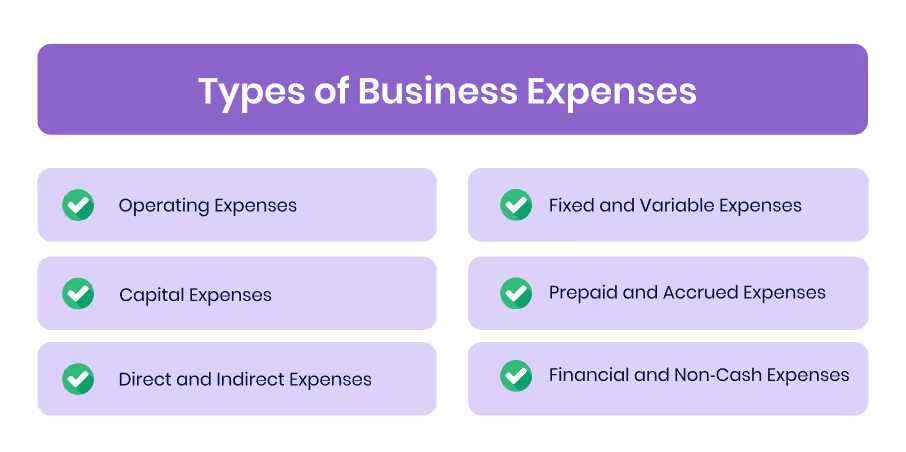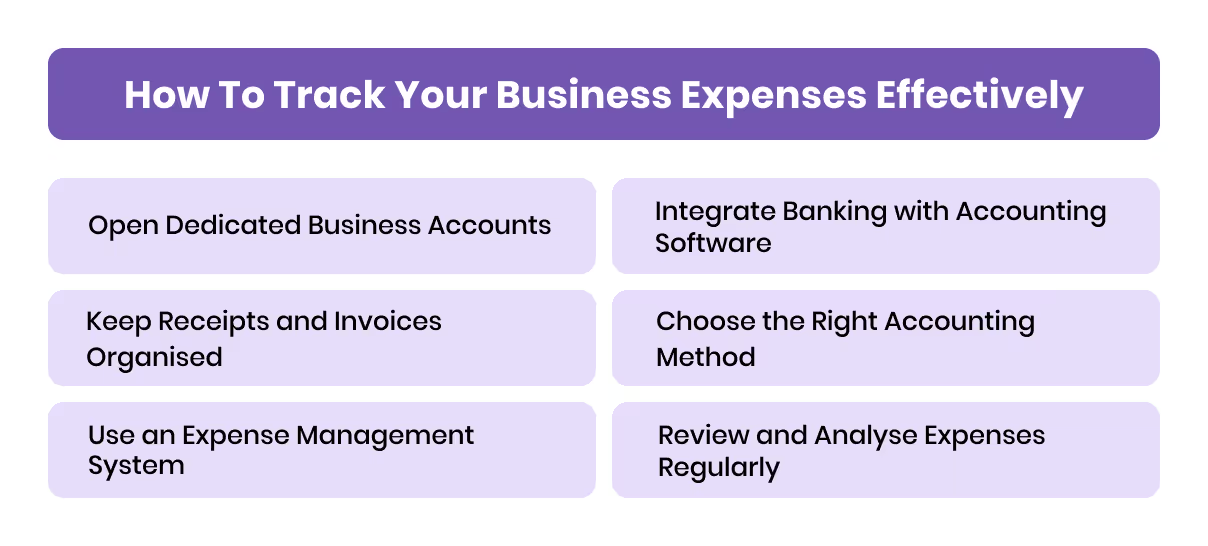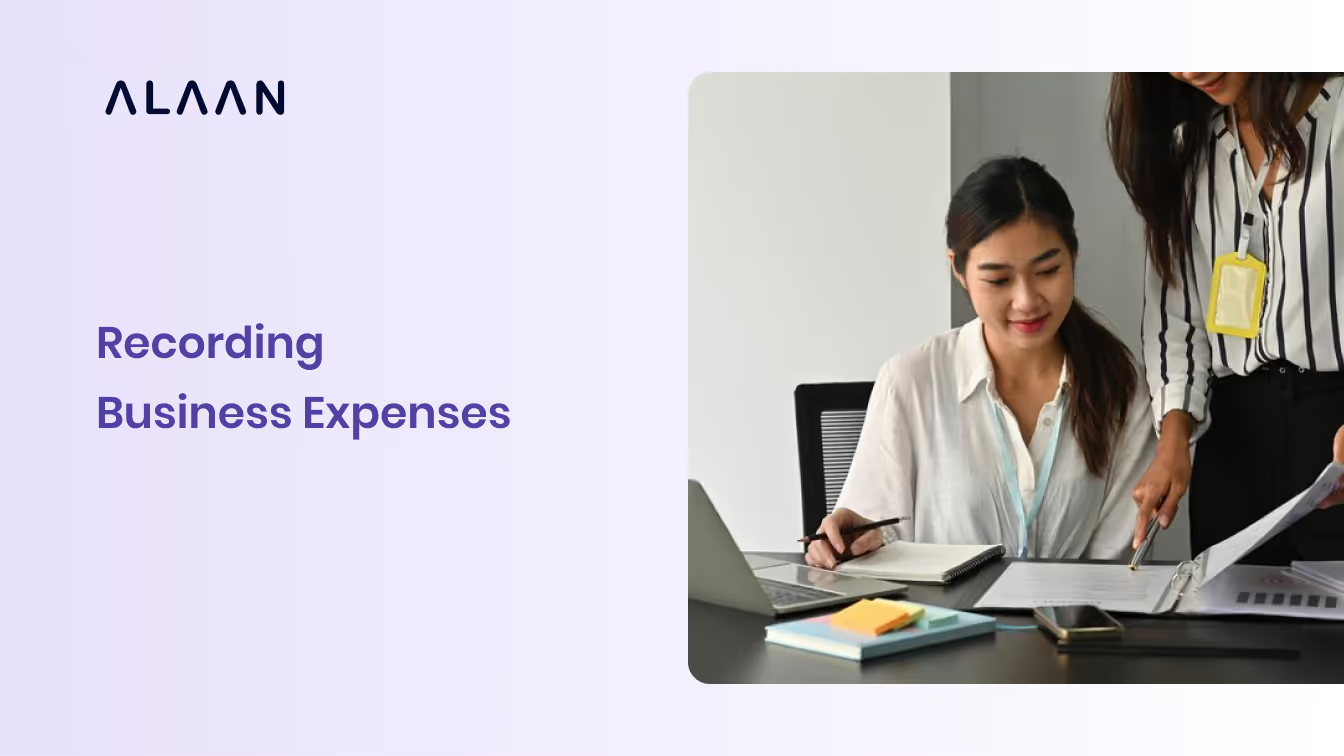Every business, whether a growing start‑up or an established enterprise, shares a common challenge: keeping track of every dirham spent. A forgotten taxi receipt, an overlooked client lunch, or a recurring subscription left unchecked can quietly erode company finances.
However, recent data from a UAE study found that 26% of employees spend approximately one hour each month manually filing expenses, and for 7%, it exceeds three hours. These inefficiencies cost businesses an estimated AED 13,206 per employee per year in lost claims or unclaimed reimbursements.
In this article, we'll explore everything you need to know about recording business expenses, from common challenges to smart tracking strategies and AI‑powered solutions.
Key Takeaways
- Recording business expenses ensures accurate VAT compliance, smarter budgeting, and better financial visibility.
- Manual expense tracking is time‑consuming and error‑prone, leading to missed claims and overspending.
- AI‑powered tools like Alaan automate receipt capture, approval workflows, and reporting, saving finance teams hours each month.
- Businesses that track spending in real time can optimise company spending and prevent small leaks from turning into big losses.
What Are Business Expenses?
Business expenses are the essential costs of running a company. They appear on the income statement and are subtracted from revenue to calculate the company's net profit or loss for a given period.
These expenses can include a wide range of items, such as:
- Employee costs: Salaries, benefits, and reimbursements.
- Operational costs: Office rent, utilities, IT subscriptions, and insurance.
- Project‑specific costs: Raw materials, marketing campaigns, and legal fees.
For everyday expense tracking, the focus is usually on spending by employees, travel, meals, client entertainment, or small purchases that require manager approval and reimbursement.
Also Read: A Comprehensive Guide to Travel and Expense Management Process
Benefits of Tracking Expenses
Accurate expense tracking does more than keep your books in order, it strengthens financial health and improves company spending habits. Here's how it helps:
- Budgeting and Cost Control: Tracking every transaction provides a clear picture of where money goes. This visibility allows finance teams to adjust budgets, catch overspending early, and switch to cost‑effective vendors or subscriptions.
- Tax and VAT Advantages: Many expenses are tax‑deductible, which can reduce taxable income and optimise cash flow. Keeping digitised, verifiable receipts also ensures VAT compliance and prevents missed claims.
- Healthier Cash Flow: Real‑time expense visibility allows businesses to plan payments strategically and avoid liquidity crunches. Finance teams can delay non‑essential spend or approve urgent costs quickly.
- Better Financial Management: Accurate expense data makes it easier to forecast budgets, measure profitability, and allocate resources wisely. It gives leaders the insights needed to make data‑driven decisions for growth.
- Identifying Savings Opportunities: Regular reviews reveal duplicate purchases, unused software, or unnecessary travel costs. Even small adjustments in company spending can add up to substantial yearly savings.
Types of Business Expenses

Accurately classifying your business expenses is more than just an accounting requirement, it is the foundation of budget control, VAT compliance, and financial decision‑making.
Knowing which expense falls into which category ensures accurate reporting and smoother audits while helping finance teams identify cost‑saving opportunities.
1. Operating Expenses
These are the everyday costs of running the business, from rent and utilities to employee salaries, office supplies, and cloud subscriptions. Tracking these ensures you never miss deductible costs, keeps budgets realistic, and highlights recurring outflows that might need optimisation.
2. Capital Expenses
Capital expenses involve acquiring or upgrading long‑term assets such as property, machinery, or IT infrastructure. While these do not immediately impact the profit and loss statement, they are depreciated over time and directly affect a company's balance sheet and future cash planning.
3. Direct and Indirect Expenses
- Direct expenses: Costs tied to creating a product or service, such as raw materials, packaging, or factory wages. Monitoring these closely helps assess product profitability and adjust pricing.
- Indirect expenses: Support overall operations, like admin salaries, utilities, and office rent. These are essential for understanding overheads and keeping company's spending efficient.
4. Fixed and Variable Expenses
- Fixed expenses remain constant regardless of business activity, like rent, insurance, or equipment leases. Knowing these helps in forecasting minimum cash requirements.
- Variable expenses fluctuate with business activity, such as raw materials, shipping, or utility bills. Analysing patterns in variable costs can reveal seasonal trends and areas for savings.
5. Prepaid and Accrued Expenses
- Prepaid expenses are costs paid in advance, think annual insurance, software licenses, or office rent. Tracking them prevents misstating monthly profitability.
- Accrued expenses are incurred but unpaid, such as salaries payable at month‑end or pending vendor bills. Timely recording improves cash flow visibility and audit readiness.
6. Financial and Non‑Cash Expenses
These include interest payments, loan processing fees, or asset depreciation. While they don't always involve immediate cash outflow, they affect profitability and tax reporting and are crucial for businesses that rely on debt or asset financing.
How to Track Your Business Expenses Effectively

Accurate expense tracking is essential for cash flow management, VAT compliance, and stress-free audits. Here's how businesses can do it effectively:
1. Open Dedicated Business Accounts
Maintain separate bank accounts and corporate cards for business transactions. This simplifies reconciliation, improves cash visibility, and ensures that every payment is automatically documented.
Centralising all payments through official channels also helps prevent unauthorised spending.
2. Keep Receipts and Invoices Organised
Every expense, meals, travel, supplies, needs a supporting document for accounting and tax purposes. Collecting and digitising receipts immediately prevents last-minute gaps during audits and supports VAT claims. A structured approach, such as categorising expenses by type or department, speeds up reporting.
For example, recording every client lunch or cab fare helps your finance team avoid missing deductible expenses during tax season.
3. Use an Expense Management System
Relying on manual spreadsheets is error-prone and inefficient. Automated tools or cloud-based expense management platforms capture transactions in real time, reduce human errors, and create approval-ready reports.
They also allow finance teams to monitor team spending and identify unusual patterns before they escalate.
4. Integrate Banking with Accounting Software
Linking your accounting system with bank accounts or corporate cards ensures that every transaction is automatically recorded and reconciled. This not only saves time but also reduces duplication errors and provides a real-time view of cash flow.
For example, a hotel stay charged to a corporate card is instantly logged and ready for categorisation without waiting for end-of-month statements.
5. Choose the Right Accounting Method
Select an accounting method that reflects your business needs. Cash accounting records expenses only when paid, while accrual accounting records them when incurred, giving a clearer view of profitability for scaling companies.
Aligning your method with VAT reporting requirements also reduces compliance risk.
6. Review and Analyse Expenses Regularly
Conduct monthly or quarterly expense reviews to identify patterns, eliminate wasteful spending, and improve budgeting accuracy. Analysing trends, like recurring vendor payments or rising travel costs, helps businesses make informed decisions and negotiate better vendor terms.
For example, reviewing expense categories might reveal multiple overlapping software tools that can be consolidated to save costs.
Pro Tips for Reducing Overspending
Controlling company spending requires more than just tracking receipts—it demands proactive measures. Here are actionable ways to minimise unnecessary expenses and keep budgets on track:
- Adopt Spend Management Software: Digital tools centralise expenses, automate approvals, and provide real‑time visibility, making it easier to spot and eliminate budget leaks before they grow.
- Issue Corporate Cards with Spend Limits: Provide employees with corporate cards that have predefined limits. This ensures spending stays within approved budgets and simplifies reconciliation.
- Lock Vendors for Specific Expense Categories: Restrict card usage or approvals to specific vendors or categories to avoid unauthorised purchases and maintain tighter cost control.
- Monitor Real‑Time Reports: Review live expense data regularly to detect anomalies or overspending trends quickly. Early insights allow finance teams to take corrective action before small leaks turn into major losses.
- Schedule Regular Budget Reviews: Monthly or quarterly reviews of departmental spending help identify redundant subscriptions, overpriced vendor contracts, or escalating categories that need attention.
Globally, 42% of organisations already use automated expense tools, achieving up to 30% lower processing costs and better compliance with expense policies.
For companies in the Middle East, the pressure to modernise is growing. As teams expand and vendor transactions multiply, relying on paper receipts or scattered spreadsheets makes it harder to track spending accurately.
This is where Alaan brings everything together, let's explore how it simplifies expense management.

Track and Control Spending with Alaan
Without the right system in place, keeping track of every dirham can quickly become overwhelming. Alaan simplifies this process by bringing all your company's spending into one smart platform.
- Corporate Cards Designed for Control: Get corporate cards with pre‑set limits, vendor or category restrictions, and instant Apple Pay or Google Pay access. Cards are pre‑funded, so teams can spend securely while finance managers stay in full control.
- Automated Expense Recording: Every transaction is logged automatically. Employees can upload receipts instantly, while Alaan's AI captures vendor, amount, and VAT details, flags duplicates, and ensures expenses are accurate without manual work.
- Real‑Time Dashboards and Insights: Finance teams see where every dirham goes, by employee, department, or vendor, in real time. Live dashboards highlight unusual spending patterns, giving businesses the chance to address issues before they escalate.
- Seamless VAT and Accounting Integration: Alaan automatically extracts VAT details from receipts and syncs with accounting tools like Xero, QuickBooks, NetSuite, and Microsoft Dynamics, helping businesses stay compliant and close their books faster.
Additional Benefits for Modern Finance Teams
- Customisable approval workflows for different teams or spending types.
- Instant card blocking or freezing for lost cards or unauthorised spend.
- Optional Scope 3 carbon emissions tracking for sustainability reporting.
With Alaan, businesses in the Middle East gain visibility, control, and confidence over every expense, from daily team spending to long‑term budgeting.
Conclusion
Recording business expenses is the foundation of better budgeting, compliance, and long‑term financial health. Companies that move away from manual tracking gain clearer visibility, faster reporting, and fewer costly surprises.
With Alaan, Middle Eastern businesses can bring all their spending cards, receipts, approvals, and accounting into one platform. The result is less manual work, more control, and smarter financial decisions every day.
Ready to simplify expense management?
Schedule a demo with Alaan today and see how you can save time, improve compliance, and manage company spending with confidence.
FAQs
1. What’s the difference between recording and categorising business expenses?
Recording refers to the act of capturing each transaction, date, amount, vendor, while categorising means assigning it to a specific type (e.g., travel, software, meals). Both are critical for accurate reporting and meaningful financial insights.
2. How do expense policies impact business expense recording?
Clear expense policies set rules for what can be claimed, by whom, and how. This ensures consistent recording, avoids disputes during reimbursement, and makes approval workflows more efficient, especially when using automated systems.
3. Should small purchases like coffee or parking be recorded?
Yes. Even small purchases add up over time and can impact budgeting and VAT claims. Recording them also prevents misuse of company funds and supports transparency, especially in employee reimbursement scenarios.
4. How can inaccurate expense recording affect audits?
Errors in expense records, missing receipts, wrong categorisation, or inflated claims, can trigger audit red flags. This could lead to penalties, delayed filings, or denied VAT refunds. Keeping clean, digital records reduces that risk.
5. Is it necessary to track reimbursable and non-reimbursable expenses separately?
Absolutely. Reimbursable expenses (paid by employees, claimed later) and non-reimbursable expenses (paid directly by the company) should be tracked separately to streamline reimbursements and provide clarity in financial reports.
6. How often should companies review their expense categories?
Ideally, every quarter. Business needs evolve, and outdated categories can blur spending insights. Regular reviews help refine reporting, uncover waste, and align expense tracking with current operations and strategic goals.


.avif)







%201.avif)